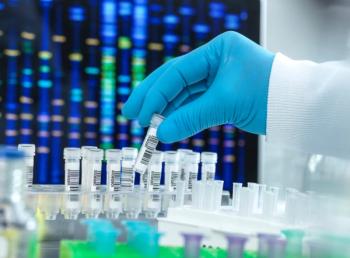
Adolescents with ADHD Need Special Attention
Adolescents with ADHD are different from other patients. Impulsiveness and inattention pose bigger problems than hyperactivity, which can translate into lower medication adherence and growing behavioral problems. And adolescent girls tend to exhibit more problems than boys in the same age range.
Adolescents with ADHD are different from other patients. Impulsiveness and inattention posebigger problems than hyperactivity, which can translate into lower medication adherence and growingbehavioral problems. And adolescent girls tend to exhibit more problems than boys in the same agerange.
"Adolescent girls have more comorbidity, not less," said Michael Reiff, MD, of Division ofPediatric Clinical Neuroscience at the University of Minnesota, speaking at the AAP NationalConference & Exhibition on Monday. "Both boys and girls have more immature peer relationships, andsleep disturbances are common. ADHD exacerbates all of the already-tough pressures that adolescentsfeel."
Impulsiveness and inattention manifest as a variety of common problems, Dr. Reiff said.Adolescents with ADHD have significantly more driving problems than other teens. They are eight timesmore likely to lose their driving license, four times more likely to be involved in a collision,three times more likely to suffer a serious injury while driving, and up to four times more likely toincur a moving vehicle violation.
"Driving is an extremely dangerous situation for teens with ADHD," he said. "You need to discuss driving issues regularly, and patients absolutely must stay on medication while they aredriving. Bottom line: parents control the keys, and driving privileges have to be contingent oncontinuing good behavior behind the wheel."
Teens with ADHD are also more likely to engage in risky sexual behavior, begin smoking at ayounger age, and are at double the risk for substance abuse, compared to non-ADHD teens.
The key to treating teens with ADHD is to focus on measurable goals, Dr. Reiff continued.Rather than expecting to raise grades, help teens aim for something specific such as turning in 80%of all homework assignments with 80% accuracy, or missing fewer than three assignments perweek.
One of the biggest problems is teens who decide to stop medication. Most are simply trying toassert more control over their lives, Dr. Reiff said, not realizing that medication is the key tokeeping on top of their symptoms.
"They are stopping medication at precisely the time when medication can help them the most,"he said. "Your goal is the help them understand that they can deal with their symptoms moreeffectively with medication than without."
Newsletter
Access practical, evidence-based guidance to support better care for our youngest patients. Join our email list for the latest clinical updates.







